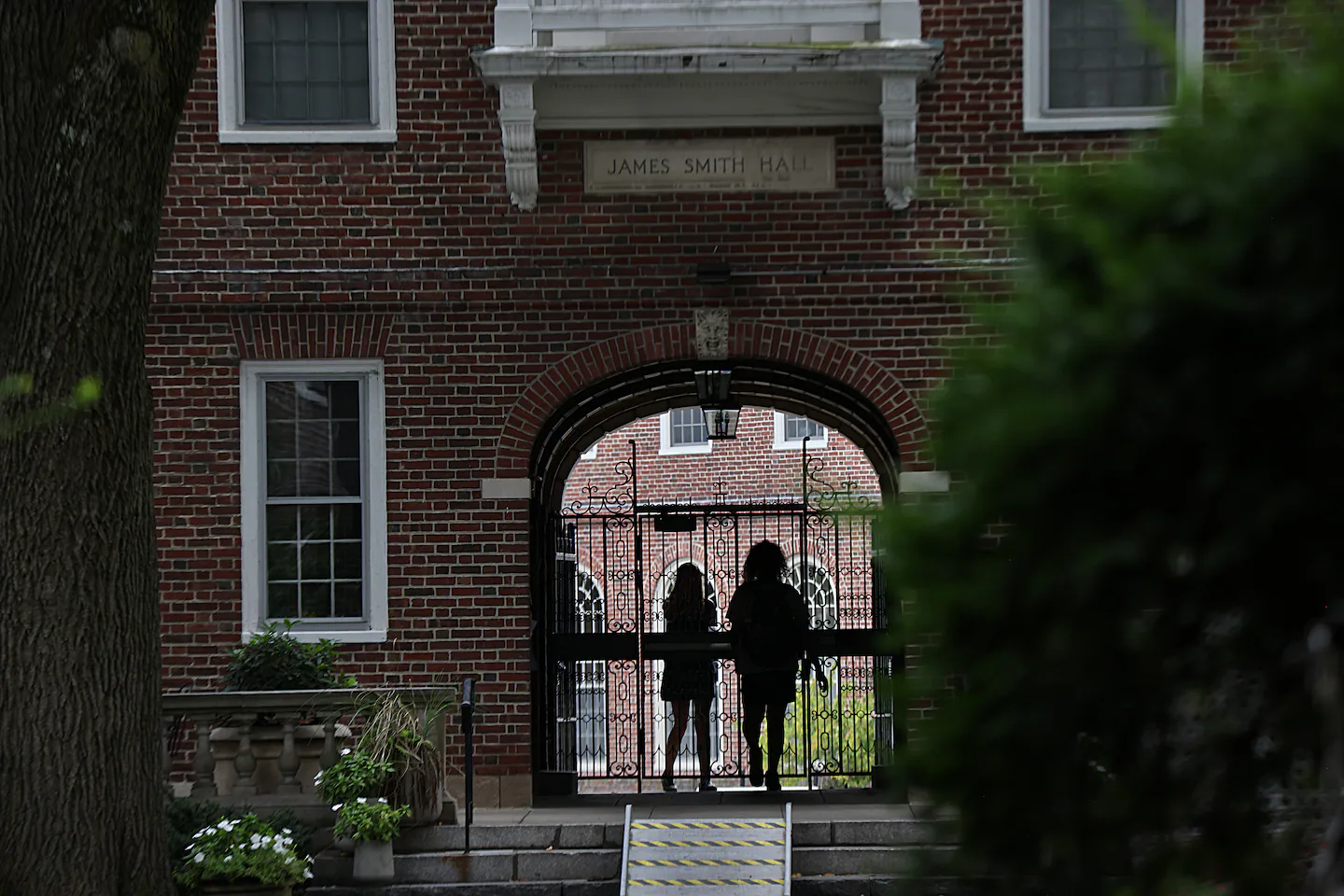
“Harvard does not claim perfection and Title VI does not require it. But Harvard has demonstrated meaningful, sustained, and good-faith progress,” read the response. Harvard argued that the government “has refused to acknowledge Harvard’s action, refused to provide fair process, and misrepresented both the procedural history and factual record.”
Harvard’s response to the HHS civil rights proceedings represents some of the university’s most forceful pushback to the Trump administration since university president Alan Garber publicly rejected a series of government demands in April. The Trump administration subsequently moved to cancel Harvard’s federal funding, ban international students from campus, and threaten its accreditation.
The response, sent Sept. 19 and obtained by the Globe this week, comes as part of a civil rights probe kicked off by HHS this spring. The agency has said Harvard failed to protect Jewish and Israeli students on campus during protests that erupted amid the war in Gaza.
The letter is a response to a June assertion that Harvard violated Title VI, and it was sent before the government this week said it would use to recommend cutting off all future grants to the University.
The effort to cut funding is separate from a legal case in which a federal judge ruled in early September that the administration had improperly pulled existing funding from Harvard.
Harvard had resumed negotiations with the federal government over the summer to restore its funding and resolve a host of investigations, but the school’s latest response comes as talks have stalled in recent weeks.
Still, Harvard notched early wins in court this month after it sued over the canceled research grants and efforts to ban it from hosting foreign students. A federal judge overseeing both suits definitively sided with Harvard in its funding case — some of Harvard’s research grants have begun flowing back to campus — and issued a preliminary injunction in the international students case that blocks the government’s attempted ban at least until the suit is decided.
Harvard lawyers cited that recent Boston federal court decision — in which Judge Allison D. Burroughs said the government had used antisemitism allegations as a “smokescreen” for withholding funds — by pointing to the court saying the record showed Harvard was “working to respond to and ameliorate antisemitism.”
On Monday, HHS escalated its civil rights proceedings against Harvard when it formally recommended banning Harvard from receiving federal funds, referring the university to its office that handles “suspension and debarment decisions.” The department said Harvard has 20 days to decide whether it wants to request a hearing.
“Congress has empowered Federal agencies to pursue Title VI compliance through formal enforcement mechanisms, including the termination of funding or denial of future Federal financial assistance, when voluntary compliance cannot be achieved,” Paula M. Stannard, director of the HHS civil rights office, said in a statement Monday.
Harvard’s reply to the HHS civil rights investigation shows just how strongly it disagrees with the proceedings. It explains at length why it believes the government’s argument did not “meet the elements” of a Title VI violation and calling much of their findings “inaccurate, incomplete, and misleading.”
It argued the federal government had not collaborated effectively with Harvard to resolve any alleged problems. Harvard, for instance, said it was updating its discrimination and harassment policies and procedures under a “voluntary resolution agreement” with the Biden administration’s Department of Education’s civil rights office, which came from a 2024 complaint alleging harassment of Arab, Muslim, and Palestinian students at Harvard. Those changes, Harvard said, needed to be approved by the federal government, but had been sitting with the education department for more than three months.
In response to the HHS notice of violation, Harvard’s attorneys argued students were not subject to a hostile learning environment that involved “severe, pervasive, and objectively offensive harassment” or deprived of educational opportunities on campus. They said Harvard was unaware of many of the allegations included in the notice or did not have direct control over conduct the administration criticized.
Harvard also asserted that it was not “deliberately indifferent to antisemitism,” and it included a a six-page appendix that laid out how Harvard had tried to combat antisemitism over the last two years, from student and faculty trainings to changing disciplinary actions.
Harvard also repeatedly disputed the accuracy of claims the government had used to argue Harvard was creating a hostile environment. In one instance, the notice cited that 60 percent of Jewish students surveyed as part of Harvard’s antisemitism task force report said they had experienced some sort of discrimination or negative bias due to their perspectives on current events.
But that was an example of how the notice “relied on outdated and incomplete information,” Harvard said, adding that the survey was nonrandomized and “reflects the views of only 130 self-selected Jewish students — roughly 0.5 percent of the student body.“ Generally, Harvard argued that the HHS report cited “facts without conducting any independent diligence or investigation to confirm their accuracy.”
The federal government’s notice, for instance, referenced five acts of vandalism it claims contributed to a hostile environment at Harvard, all of which Harvard said the school had investigated and responded to. Harvard also said the government appeared to have relied on a number of accounts of student-on-student harassment that were not reported directly to Harvard to verify.
“Even if not every initiative has yielded immediate or universal success, that does not render Harvard deliberately indifferent,” Harvard wrote in its response.



